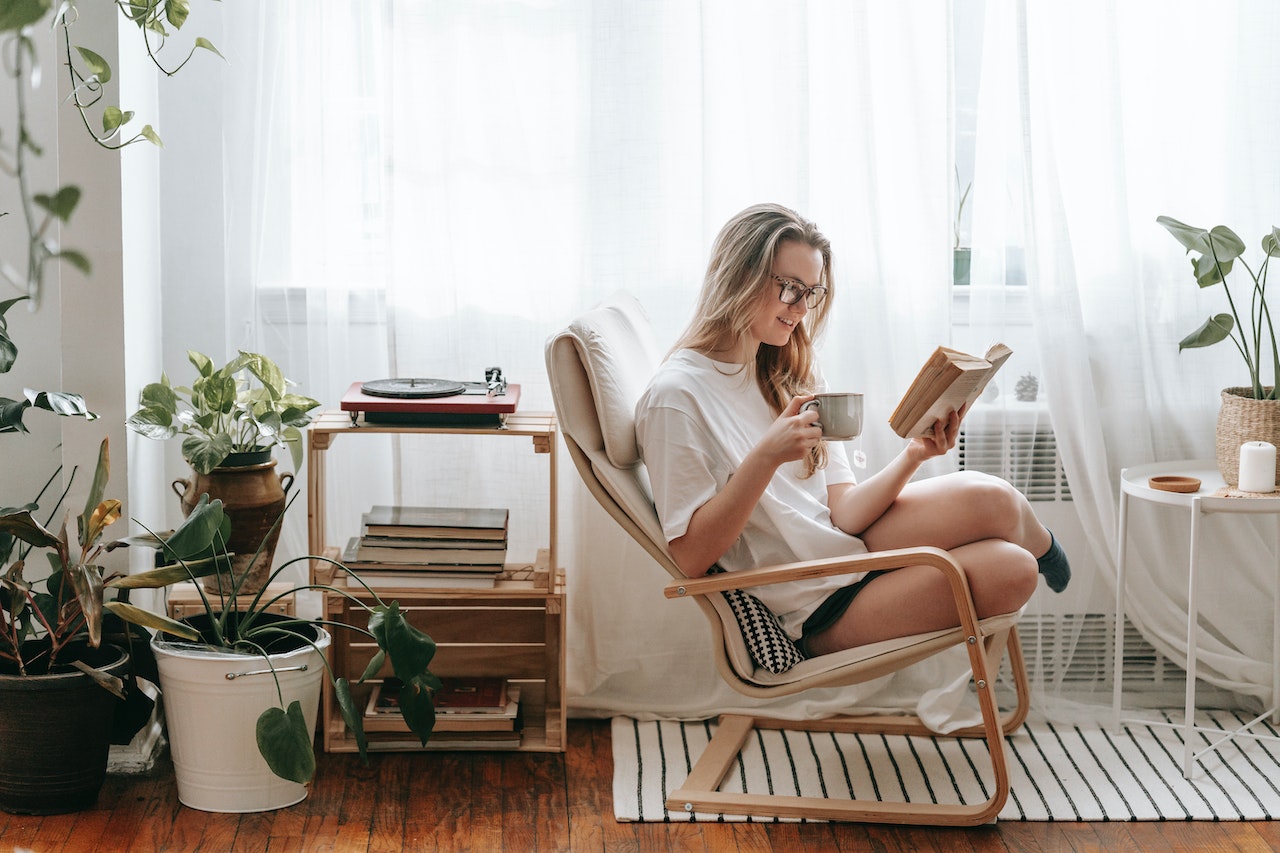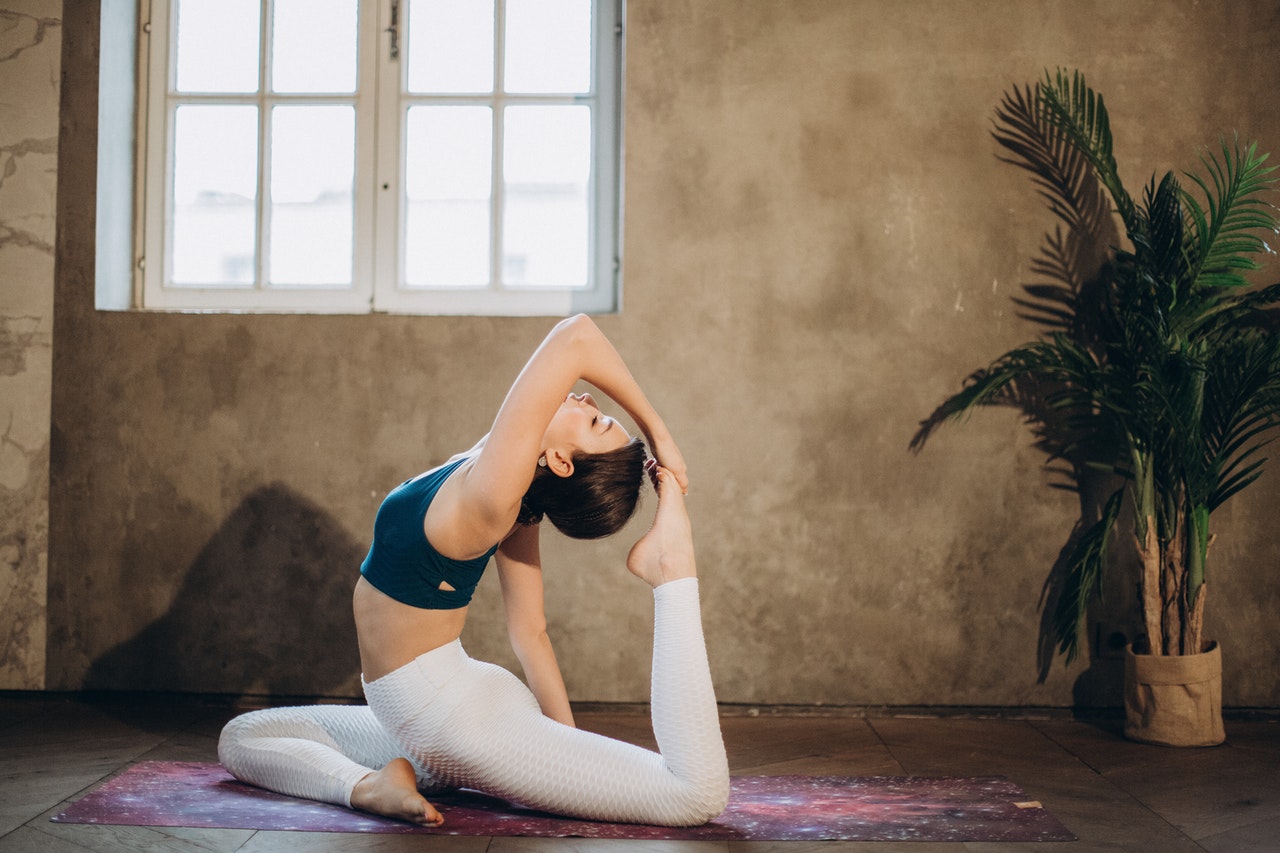Sometimes life can become hectic and chaotic. We feel like we don’t have time for anyone, often including our grandparents or elderly parents. The time for bonding disappears, and we leave our loved ones unattended. That is why I thought about a creative idea to help create some bonding time. The idea is to use essential oils with elderly loved ones. I hope after reading this article, you find yourself using essential oils with elderly loved ones.
As we age, our bodies need more attention and care. The use of essential oils may provide a range of benefits to the elderly loved ones in your life. These natural oils contain a range of properties that may improve overall well-being. Suppose you’re considering sharing and using essential oils with an elderly loved one in your life, like your grandparents or elderly parents. In that case, this simple article will point out some information that will help you get started.
What are Essential Oils?
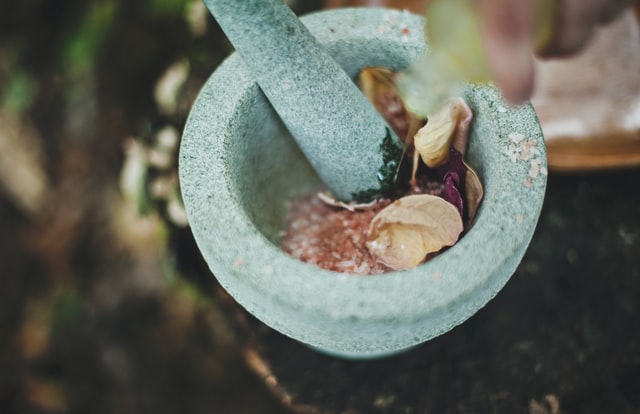
The term essential oils refer to the “essence” or compound of oils extracted from various plants. When these oils are extracted, they contain the flavor or scent of the plant and some of its unique properties. You’ll find essential oils from lavender, citrus fruits, and a variety of herbs and flowers, to name a few.
Each type of oil has a unique compound that gives it an individual benefit and scent. Essential oils are made through the process of distillation like steam or water. They may also be extracted using cold pressing or other mechanical means. Once these chemicals are extracted from the plant, they’re added to a carrier oil (like coconut or argan oil) to create the products you use.
Bonding with Elderly Loved Ones in a Positive Way
You can enjoy some family bonding through the use of essential oils. Here are a few examples of how to integrate these oils into a healthy routine for positive bonding.
- Spend some time with your elderly loved one and enjoy a nice, quiet day with some aromatherapy. An oil diffuser or DIY candle is an excellent way to enjoy the many beautiful scents of essential oils together as you read a book, put a puzzle together, or sit down and enjoy a good conversation.
- Use essential oils to give your elderly loved one a gentle massage to relax their muscles. Just make sure that you’re using a carrier oil or pre-made massage oil or cream not to irritate their skin.
- Learn about the different types of plants that are used to make essential oils. You can even start your herb or flower garden together for some family bonding time.
- You can take your elderly loved ones on an adventure and learn how ingredients for the oils are grown.
- Choose suitable oils that will give your elderly parents or grandparents the best benefits. For example, the experts mention that peppermint oil could help them relax. Citrus oils are said to be able to improve their memory, focus, and cognition. Tea tree is believed to help boost the immune system. Another popular one is ylang-ylang that may help with headaches, stomach problems, and certain skin conditions.
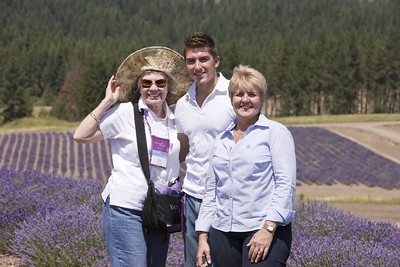
How to Inhale Essential Oils
In most cases, essential oils are used as a beneficial form of aromatherapy. Here are some tips to ensure that you’re using the inhalation of these oils safely and in the right way.
- An oil diffuser is an effective and safe method that allows you to breathe in the fragrance of essential oils. Always follow the manufacturer’s directions carefully when using diffusers and add a few drops of water to the oil if required.
- Enjoy aromatherapy in moderation to see how your elderly loved one reacts to the oils. You may need to dilute the oil more or only enjoy the scents for an hour at a time until they get used to the fragrance.
- Pay close attention to how your elderly loved one feels when inhaling different essential oils. If you notice an unpleasant reaction, try another oil or use a lesser amount to see if that helps them adjust.
- Always seal the bottle of your essential oils after use and keep them out of the reach of your loved ones, pets, and children. Essential oils can be dangerous if ingested.
Bathing Using Essential Oils
Essential oils can make for a relaxing, soothing bath. Keep these tips in mind if you’re planning to use them for bathing your elderly loved one.
- Do not add the oil directly to the bathwater. These highly concentrated oils can potentially irritate the skin, causing dryness, redness, or itchiness.
- Always use a carrier oil when bathing with essential oils. Ideally, a mixture of three to 12 drops of oil with a teaspoon of carrier oil like jojoba or olive oil is best.
- Allow the tub to fill with water completely before adding the essential oils to ensure that the water captures the scent.
- Be aware that oils can cause the tub to be slippery. Monitor your loved ones whenever they get in and out of the tub to ensure they don’t slip and fall.
Topical Use of Essential Oils
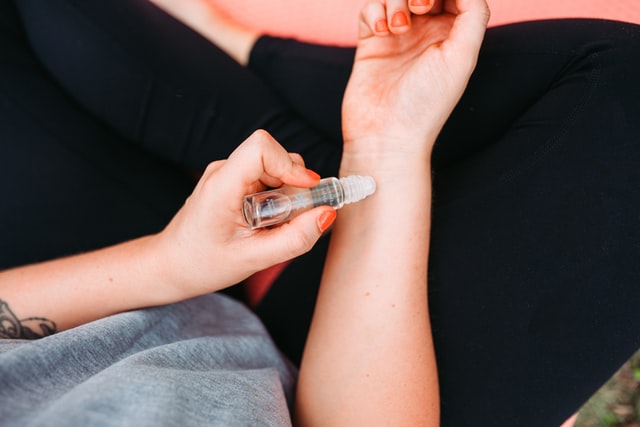
You can apply essential oils topically to give your elderly loved one a range of benefits. Here are some tips to ensure that you’re using topical oils correctly.
- Always combine a few drops of oil with a carrier before applying it to the skin. Elderly skin is thinner and more fragile, so monitor your loved ones carefully to ensure that they don’t experience any reactions to the oil.
- You can apply some essential oils to the crown of the head, behind the ears, on the temples, and on the neck to relieve stress and headaches.
- If the oil is too strong, continue to add more carrier oils until it’s properly diluted.
- When using essential oils for massage, be as gentle as possible and only use a minimal amount.
Using Essential Oils for Yoga and Meditation
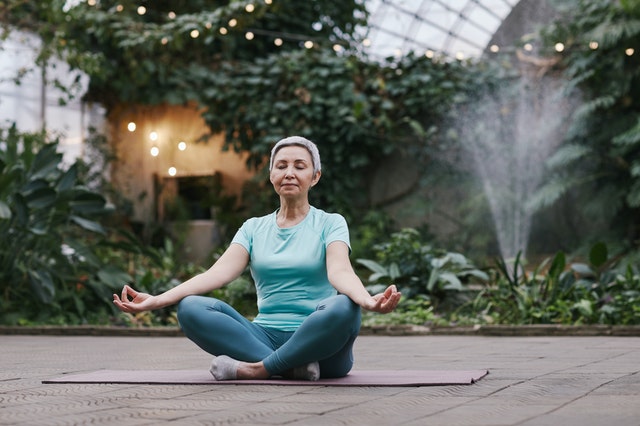
Practicing yoga and meditation both provide a range of benefits for seniors. Use these tips to integrate essential oils into their daily practice:
- Add soothing oils to a diffuser that have a calming effect like lavender, chamomile, or eucalyptus to promote feelings of calm during meditation.
- Mix a few drops of your elderly loved one’s favorite essential oil with some water and put it in a spray bottle. Shake the bottle vigorously, then spray the room to create a soothing fragrance. You can also use this as a yoga mat mist, but make sure it’s dry before using it.
- Dampen a washcloth with some water and add a few drops of essential oil, then place it in a freezer while you do yoga. Once the yoga is over, apply it as a cooling, soothing compress to help your loved one cool down and relax.
Essential Oils for Sleeping and Relaxation
Many essential oils promote feelings of calm, and they may also help your loved one get a more restful night of sleep. Here’s a list of the best essential oils to use as aromatherapy or in a bath for your elderly loved one:
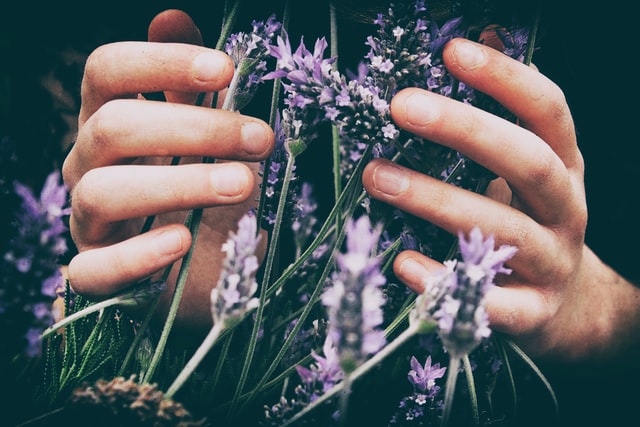
- Lavender: This popular oil can help your loved one fall asleep, and it may also promote deeper sleep too.
- Chamomile: Use this oil in a diffuser to help reduce stress. As a plant, chamomile also makes a wonderful relaxing cup of hot tea.
- Bergamot: This oil is known to lower blood pressure and potentially help to alleviate stress and anxiety.
- Sandalwood: Enjoy the soothing fragrance of sandalwood oil to promote feelings of calm. This oil also has some sedative properties to help your loved one fall asleep.
- Peppermint: This potent oil has anti-inflammatory properties that make it a good choice if your loved one is dealing with a cold or if they snore or have a mild case of sleep apnea.
- Eucalyptus: Try this essential oil to clear the sinuses so your loved ones can fall asleep faster if they have a stuffy nose.
Essential Oil Dilution Rates
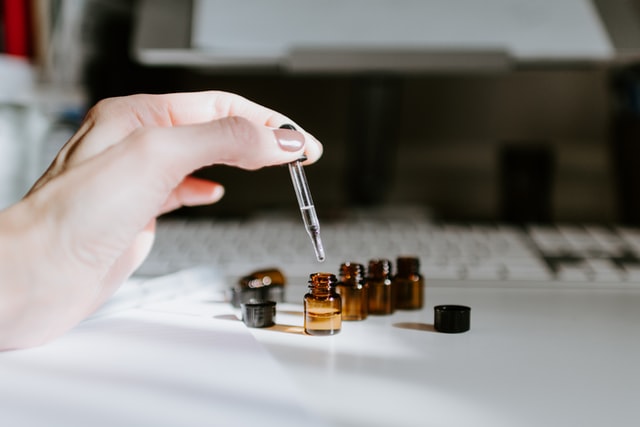
When using essential oils topically, inhaling them, or in any other way, it’s necessary to make sure they’re adequately diluted. Use this as a guide to ensure you have the correct dilution rate. If your elderly loved ones have thin or sensitive skin, start with a 1% dilution rate for your mixture. You can increase to a 2% dilution rate if your skin shows no irritation and you’d like to use a more potent blend.
- Add three drops of essential oil to two teaspoons of carrier oil when using as a face, neck, or body application.
- If you’re adding oils to bathwater, add just a few drops of the oil to the bath once the tub is full.
- For a larger mixture, add approximately nine drops to about six teaspoons of carrier oil for a 1% dilution rate.
- Use an online dilution rate chart to help you find the right combination of essential oil to water or carrier oil, depending on your needs.
Using Essential Oils with Elderly and its Positive Outcomes
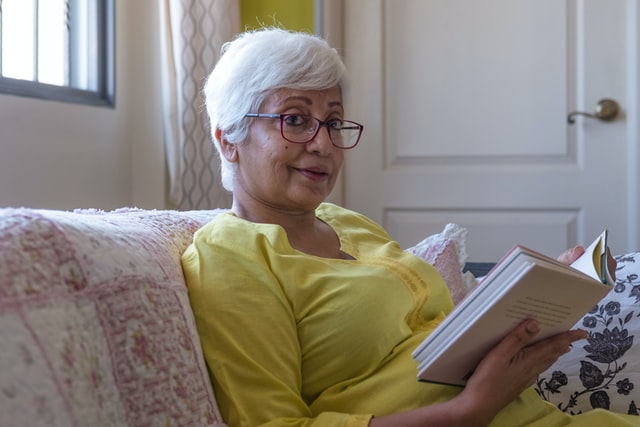
Stress relief: When used as aromatherapy, essential oils may help to lower stress levels and calm anxiety. Also, spending time together and talking about life’s joys will help improve stress levels.
Sleep: Many essential oils such as lavender may help your loved one fall asleep and experience better sleep quality and duration. The bonding will also help since people who tend to be closer to loved ones feel more comfortable, improving sleeping habits.
Using essential oils as part of a healthy routine can help your elderly loved one thrive. Be sure to integrate these oils into their lifestyle to experience the many benefits they provide. Your loved one will not only thank you, but it’s an excellent way for you to bond with them and spend some quality time together.
Disclaimer:
The material and information contained in this article about essential oils are for general purposes only. You should not rely upon this material as factual regarding making any health benefit decisions. If you have questions, please consult your doctor or other qualified clinicians.

